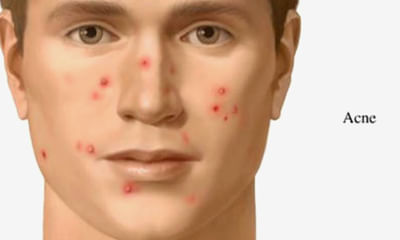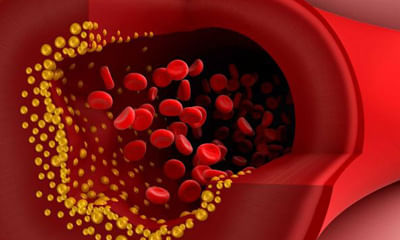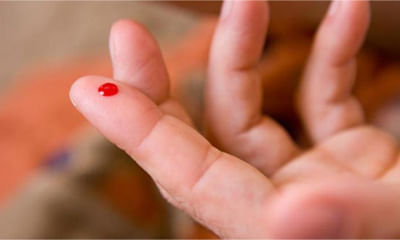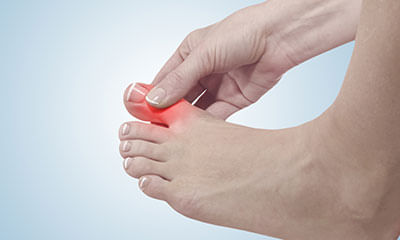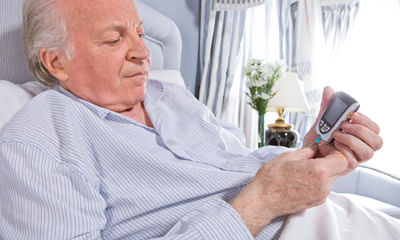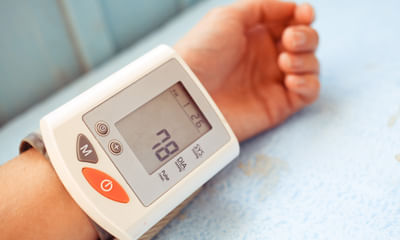What Does Hyperlipidemia Mean
I was advised to get lipid profile and lft test done before taking isotretinoin capsule for treating skin acne problem. ...
Ask Free Question
Hyperlipidemia sometimes aggravates acne and Pimples in your body though not always. You can take the drugs. but I would suggest talk to your doctor before starting your medication
I am 33 male suffering with hyperlipidemia. Took jupiros f for 2 months & triglycerides reached under control but after ...
Ask Free Question
It does not have a single reason. Make some lifestyle changes. Dietary restrictions. Exercise. Etc. Take homoeopathic treatment. You can consult me at Lybrate.
What signifies that the person posses high cholesterol. And what we should avoid in our diet to be cholesterol low in ou ...
Ask Free Question
Eat a heart-healthy diet Making changes to your diet can lower your “bad” cholesterol levels and increase your “good” cholesterol levels. Here are a few changes you can make: Choose healthy fats. Avoid saturated fats that are found primarily in red meat, bacon, sausage, and full-fat dairy products. Choose lean proteins like chicken, turkey, and fish when possible. Switch to low-fat or fat-free dairy. And use monounsaturated fats like olive and canola oil for cooking. Cut out the trans fats. Trans fats are found in fried food and processed foods, like cookies, crackers, and other snacks. Check the ingredients on product labels. Skip any product that lists “partially hydrogenated oil.” Eat more omega-3s. Omega-3 fatty acids have many heart benefits. You can find them in some types of fish, including salmon, mackerel, and herring. They can also be found in some nuts and seeds, like walnuts and flax seeds. Increase your fiber intake. All fiber is heart-healthy, but soluble fiber, which is found in oats, brain, fruits, beans, and vegetables, can lower your LDL cholesterol levels. Learn heart-healthy recipes. Check out the American Heart Association’s recipe pagefor tips on delicious meals, snacks, and desserts that won’t raise your cholesterol. Eat more fruits and veggies. They’re high in fiber and vitamins and low in saturated fat. Lose weight If you’re overweight or obese, losing weight can help lower your total cholesterol levels. Even 5 to 10 pounds can make a difference. Losing weight starts with figuring out how many calories you’re taking in and how many you’re burning. It takes cutting 3,500 calories from your diet to lose a pound. To lose weight, adopt a low-calorie diet and increase your physical activity so that you’re burning more calories than you’re eating. It helps to cut out sugary drinks and alcohol, and practice portion control. Get active Physical activity is important for overall health, weight loss, and cholesterol levels. When you aren’t getting enough physical activity, your HDL cholesterol levels go down. This means there isn’t enough “good” cholesterol to carry the “bad” cholesterol away from your arteries. You only need 40 minutes of moderate to vigorous exercise three or four times a week to lower your total cholesterol levels. The goal should be 150 minutes of exercise total each week. Any of the following can help you add exercise to your daily routine: Try biking to work. Take brisk walks with your dog. Swim laps at the local pool. Join a gym. Take the stairs instead of the elevator. If you use public transportation, get off a stop or two sooner. Quit smoking Smoking lowers your “good” cholesterol levels and raises your triglycerides. Even if you haven’t been diagnosed with hyperlipidemia, smoking can increase your risk of heart disease. Talk to your doctor about quitting or try the nicotine patch. Nicotine patches are available at the pharmacy without a prescription. You can also read these tips from people who have quit smoking. further help u can consult online
I am 74 years old. All my tests such as CBC, KFT, LFT, Blood Sugar (fasting and after breakfast) and PSA in range. But L ...
Ask Free Question
It's hyperlipidemia Generally increase in obese person who uses more fatty food, it's a risk factor in hypertensive patient you can use antihyperlipidimic drug like statins to prevent.
I am a 50 year old female I had a thyroidectomy in 1989, and have been euthyrox 01µ since then. I am also diabetic on me ...
Ask Free Question
Check your thyroid levels, if not corrected properly can cause weight gain Menopause can cause weight gain Keep your diabetes and lipids under control Take proper medical nutrition therapy for your problem For further query book an appointment.
Sir, recently I have been examined for LFT, KFT and lipid tests as a routine check up since I have been on medication fo ...
Ask Free Question
Tell me your HDL value. Many reason may like high uric acid chances of gout, low level HDL risk factor of hyperlipidemia. By diet you can reduce the risk factor. Contact me for customized diet plan through Lybrate.
My blood test reveals higher Sgot sgpt ie 111 and 239 respectively also ultrasound show hepatomelagy cholesterol level i ...
Ask Free Question
As of now firstly we should plan to decrease the sgpt sgot levels and than plan for hyperlipidemia Medication
I am suffering from Gout in big toe of left foot from last 20 days with swelling and pain. I am also taking treatment fo ...
Ask Free Question
You are having high cholesterol also, do regular exercise, avoid high protein like mutton egg, masoor dal, tomato milk n milk products, avoid fatty food, reduce your oil consumption, take fruits daily, now do some yoga, stretching exercises, if you wants to cure your problem permanently without any complications then you have to do proper homoeopathic treatment, by proper homoeopathic treatment your gout and hyperlipidemia will be cured completely, So you can contact me through Lybrate in private consultation.
Hi doctor, My age is 40 yrs/male. I'm non-smoker, non-drinker (only drink 1 beer in 3 or 4 months) and I have type 2 dia ...
Ask Free Question
Hypertriglyceridemia refers to an elevated level of triglycerides (a type of lipid) in the bloodstream, a condition that increases the risk of coronary artery disease. The triglycerides found in our bloodstream are a mixture of triglycerides that have been obtained from the diet and those produced in the body to provide an energy source. Hypertriglyceridemia is often caused or worsened by factors such as obesity, poorly controlled diabetes and a sedentary lifestyle. A certain amount of triglycerides is required in the blood to serve as a source of energy, but when there is an excess, these fats increase the risk of heart disease, stroke and other health issues. Triglycerides themselves do not directly cause the fatty deposits that accumulate in atherosclerosis, but the cholesterol inside triglyceride-rich particles called very low density lipoproteins (VLDLs) may add to the formation of plaques. In many cases, people with hypertriglyceridemia have other lipid disorders or risk factors associated with heart disease and stroke, including obesity and metabolic syndrome. Metabolic syndrome refers to a cluster of risk factors that includes high blood pressure, high triglycerides, high blood sugar, excess fat around the waist and abnormal cholesterol levels. After people eat, the body turns any calories that have not been used up into triglycerides and these are stored in fat cells. In between meals, certain hormones release triglycerides for energy and if people regularly consume more calories than they need to use up, they may develop a high blood triglyceride level. Whether or not a person’s triglyceride level falls within a healthy range can be ascertained using a simple blood test. A triglyceride level is considered normal if it is below 150 mg/dL, while borderline ranges from 150 to 199 mg/dL, high from 200 to 499 mg/dL and very high is 500 mg/dL or above. The level of triglycerides in our blood usually increases with age, but risk factors that increase the likelihood of the triglyceride level becoming too high include the following: Lifestyle: Overweight or obesity Excess alcohol intake Lack of physical activity Inherited disorders Pregnancy Type 2 diabetes Metabolic syndrome Medications: Thiazide diuretics Beta-blockers The most common reasons for hypertriglyceridemia developing are obesity, lack of physical activity, type 2 diabetes, metabolic syndrome and familial hyperlipidemia, a genetic condition that causes high triglycerides and low levels of the “good” cholesterol, HDL (high-density lipoprotein). In rare cases, people with a very high triglyceride level develop pancreatitis which causes severe abdominal pain, nausea, vomiting, fever and loss of appetite. Doctor may start you on lipaglyn which is very effective in controlling hypertriglyceridemia.
I'm advised to take Calaptin 240 sr one tab daily with Nexito Forte one tab daily night including Aztor 10 mg tab daily ...
Ask Free Question
Hi lybrate-user, Most of the time, risk for arrhythmia and high lipids stay for lifetime and its advisable to be on medicines for rest of the life. Medications typically are adjusted for response, need, and any side effects. If you are tolerating the medicines without any problem, they can be continued. If your risk decreases over the next few years, certainly dosage can be reduced, or taken off even, depending on how you do. Every medicine have potential side effects. A drug which doesn't cause side effect, typically doesn't have any effect at all. The question here should be how much benefit vs how much risk. If benefit of preventing tachycardia and controlling cholesterol sounds good to you, a concern for side effect shouldn't prompt you to stop the medicines. Take care.

